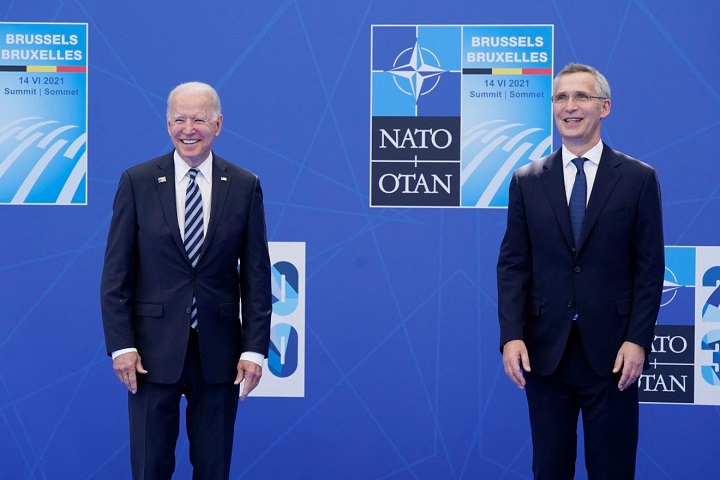The first meeting between Europe and the US took place recently at the NATO Summit in Brussels. After Donald Trump criticised Europe for not pulling their weight in the Transatlantic alliance relations reached rock bottom between the allies. With Joe Biden now the new US president he has been keen to present a new front for US relationships and alliances and revive the transatlantic security alliance is a key part of his post Trump strategy. But NATO has been struggling for decades to redefine itself and its unlikely going go achieve this with current global situation.
NATO played a key role in integrating US and European military capabilities during the Cold War. When WW2 ended, the European continent was devastated from the continentwide war. The Soviet Union emerged as a power and its borders moved all the way to Berlin in Germany. Europe was in ruins and no position to defend against thousands of Soviet tanks that had their eyes on everything West of Berlin and it was this reality that led to the US to provide the security guarantee to Europe to ensure the European continent didn’t become communist. Up until 1991 the purpose of NATO was clear, the enemy was clear and the military capabilities, operational doctrine and strategy was very clear. Each European nation was clear in its role against communism.
Ever since the Soviet Union collapsed in 1991, NATO has been suffering from an identity crisis. The removal of the Soviet military threat made NATO redundant and despite the alliances involvement in the Balkans war it remains an alliance without a real enemy and purpose. In the 1990s, WW2 was over four decades in history and Europe didn’t see the need to continue maintaining large militray forces in the transatlantic alliance against Russia. In the 1990s, Europe wasn’t dependent upon the US as it was in the 1950s and as a result more money went into development of national militaries for purposes of national security rather then them interoperability with the alliance structure. The 1990s also saw the Maastricht Treaty unify Europe and as a bloc it came to challenge the US economically. Europe didn’t see the relevance of NATO in the post-Soviet world and this can be seen in its declining military expenditures.
Europe has also looked upon Russia very differently to how it saw it during the Cold War. For two decades after 1991 Eastern Europe was opened up to Europe and the EU expanded to bring as many former Soviet republics it could into the EU. Russia posed little threat and some nations such as Germany depended on energy relations with Moscow. Even today Russia is nothing like the Soviet Union, it is much weaker. Russia’s main strategy in Europe is no longer the Red Army but hybrid warfare such as supporting right wing parties, cyber warfare and misinformation. This strategy is a recognition by Moscow of its limited capabilities.
As the decades have passed, differences between Europe and the US have increased. The Nord Stream 2 pipeline has created divisions amongst European nations as much as it has with the US. The US is now looking to replace the Soviet Union with China as the alliance’s main foe and here Europe and the US are not on the same page. China has no borders or waters with Europe and so poses little risk to the European continent and also offers numerous economic benefits when it comes to trade, technology and Foreign Direct Investment (FDI). Whilst the Soviet Union posed an immediate security threat, China is across the other side of Eurasia as far as Europe is concerned. China is offering technology to Europe that the Soviet Union was never able to offer and this is why the US has struggle to get European cooperation against China.
In many ways NATO is an organisation that was made for an era, an era that was in the past century. The US currently is taking on China mainly in the economic realm and NATO was never an economic alliance and that’s why the US will struggle to get Europe to meet its funding requirements against China, who do not view China as a militray threat. For long NATO was the tool the US used to align Europe to it, today this tool lacks the context to play the same role, despite the grand statements and communiques.
Written for the Central Media Office of Hizb ut Tahrir by
Adnan Khan

